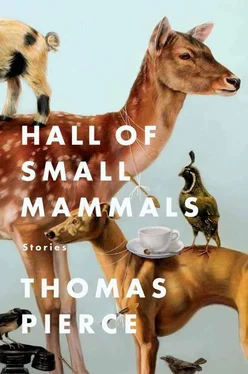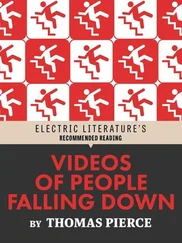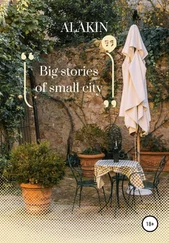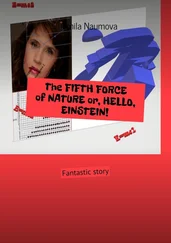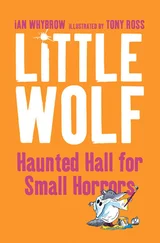He takes the stairs.
He’s in the building to visit Adam Fitzgerald, his racquetball partner. Sometimes, between games, they discuss their work, but Randolph can never quite make sense of Adam’s job, of how a Listserv can generate an income. “So who’s paying you, exactly?” he’s asked his friend.
“You are,” he says.
“What do you mean, I am?”
“I mean, all of it, everything, what people say, the entire system. It feeds itself.”
These conversations are always elliptical and frustrating, and so mostly they just play racquetball in the gym on the second floor of this building, where they are both members.
Randolph climbs twelve flights of stairs. He’s breathing heavy when he knocks on Adam’s suite door.
“You’re way late,” Adam says.
“I had to take the stairs from the eleventh floor. Your elevator almost killed me.”
“Did it drop again? We’re supposed to be getting a new one,” Adam says, and then turns his computer slightly sideways so that Randolph can see the screen too. He clicks through his in-box. “Come and look at this. Someone sent it to me.”
They watch about two minutes of a video montage. A chubby man rides a motorbike over a dirt mound and gets tossed. A woman with a birthday cake gets knocked by a small child into a swimming pool. In front of a crowd of people at Kennedy’s Eternal Flame, an older woman trips and stumbles forward forward forward and down onto her chest. A man, Marshall, turns away from a bank ATM and slams into a wall of glass before falling back onto the floor. A small pudgy boy gets knocked down on a Slip ’N Slide.
“Look at that fat little fucker,” Adam says, and replays the Slip ’N Slide accident. He doesn’t tell Randolph that it’s him, that he’s the little fucker. The first time he clicked on this video link, he was mortified to find himself among its victims. But then he started playing it for people and forwarding it. He started posting cruel comments on the video’s thread, subjecting the fat little fucker to all sorts of online abuse. “Take it easy,” another commenter said once in response to Adam. “He’s just a poor kid.”
Adam watches his friend react to the Slip ’N Slide fall, smirking, then lets the video play forward. The falls are repetitive and hypnotic. It’s hard to believe these are the same mammals that sent one of their own to the moon. When the video ends, it suggests ten more just like it. Adam clicks on one. Beyond each video are ten more. It could go on forever, a video fractal.
“Who has the time to compile all this?” Randolph asks. “Who makes them?”
“We all do.”
“I don’t.”
“Not you specifically. But all of us, what we watch, what we want, everything, the entire system. It’s all of us.” Adam has his sleeves rolled up to his elbows. His hair is tight and curly. They’re watching reporters now. One reporter falls after getting kicked in the nuts by a giant bird. Another one, Tammy, falls backward and flashes her panties.
“God, I love local news,” Adam says. “Isn’t it the best? This morning they did a story on defective treadmills. Oh, man, you should have seen it. Funniest thing ever. The reporter actually interviewed a guy while they were both walking on treadmills.”
“You ready to play? I’ve got to be back at work in an hour.”
They leave the suite, and Adam locks the door. Downstairs at the gym, they play two games of racquetball. They are evenly matched, but Randolph wins both games today.
“Everything all right?” Adam asks. They are in the changing room, in towels after their showers, arranging themselves in the steamy mirror. “You seem a little out of it.”
Randolph combs his hair and tells his friend about the elevator, how his mind emptied out while he was falling.
“Sounds like you went Zen, brother. It means you’re an enlightened dude.”
Enlightened . Randolph tries on the word like a pair of pants that won’t ever fit right. He doesn’t know a lotus from a lama. The only time he ever meditated—“Your thoughts are balloons,” the instructor kept saying — he fell asleep and started snoring in front of the entire class.
“I never believed in heaven,” Randolph says. “Not as an actual place. But I always kind of hoped that at the moment we die, time no longer works the same and your final three seconds of brain activity might feel infinite. Like a dream that doesn’t end. And your last conscious thought would determine the dream.”
“The average male thinks about sex every eight-point-five seconds, so—”
“But I wasn’t thinking about anything. It just would have been over. Just like that.”
That night Randolph gets home very late. Beth, now his wife, is already in bed, reading the novel about beekeepers. He brushes his teeth and then lies awake in the dark beside her. Their five-year-old daughter is asleep in the next room.
“How was your day?” she asks.
Sometimes when they sleep with their backs to each other, her voice sounds impossibly distant, like the bed is twenty feet across and they’re on either edge. He pretends, for a moment, that the bed really is twenty feet across and that he is the sort of husband who tells his wife nothing, who holds on to stupid little stories simply for the satisfaction of possessing something she knows nothing about. Pushing her away could start here, now. But he tells her about the elevator, about the nothingness, even about his fear that this life is all there is. She takes his hand and asks him for more. He tells her everything.
Funniest Treadmill & Stairs Falls Ever
Carol Spivey — whose beekeeper novel was on the Times bestseller list for forty-two weeks — runs on a treadmill in a wide and bright gym. Her speed is 6.2 miles per hour. Affixed to the treadmill is a small television screen. She has the news on but forgot her headphones, so she has to read the captions. The anchor is interviewing the defense attorney representing the cellist who murdered his wife’s lover. The case has been all over the news because the wife’s lover was a semi-famous musician. Musician-on-musician violence, the banner at the bottom of the screen says. The anchor asks how the cellist will plead, and the lawyer says that hasn’t been determined yet.
“We just don’t know all the facts yet,” the lawyer says.
“But I think it’s fairly open-and-shut, isn’t it?” the anchor asks. “They have a witness, the sister. They have a motive.”
“We just don’t know all the facts yet,” the lawyer says again.
Carol changes the channel. She doesn’t like to watch that kind of filth. It pollutes the mind. She runs to clear her head and think of new book ideas. But then again, the cellist’s story is an intriguing one, full of interesting contradictions. In his picture he looks like such a mild-mannered man. They say he worked in a stationery store, of all places. He was capable of producing such beautiful music, and yet he committed this horrible crime. Carol has never explicitly written about murder. She’s never inhabited a killer’s head (a type of head she has always assumed to be very different from her own). Already she is constructing a plot, an intricate one, with so many characters and story lines that she’ll hardly have to focus on the murder at all. She’ll be able to write all the way around it without touching the dark sticky thing itself.
The treadmill makes a disconcerting whipping noise, the belt kicks sideways, and it spits Carol off the back end. She rolls into a stationary bike, and its gray plastic pedal nicks her neck. She is the 342nd person injured by this type of treadmill. It leaves a small, light scar.
Later that year she joins the class-action lawsuit against the manufacturer, which coincides with the cellist’s trial. In spite of herself, Carol finds herself tuning in for the highlights every evening. They say the cellist is guilty; the cellist is not guilty; the cellist lost his mind; the cellist was depressed; the cellist was lonely; the cellist was a good man in a bad situation; the cellist was a bad man who had always acted like a good man; the cellist was jealous; the cellist had been treated poorly; the cellist had so much to be grateful for; the cellist is deeply sorry; the cellist should be put to death; the cellist should be put in a hospital; the cellist should get locked up with his cello but without a bow and rosin ha ha ha; honestly, who cares about the cellist?
Читать дальше
